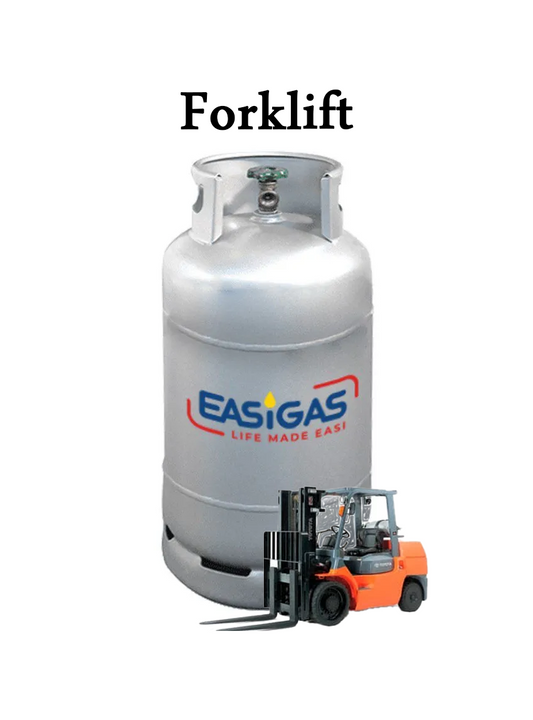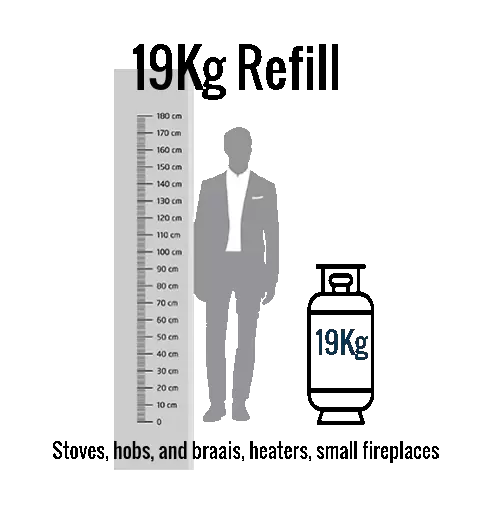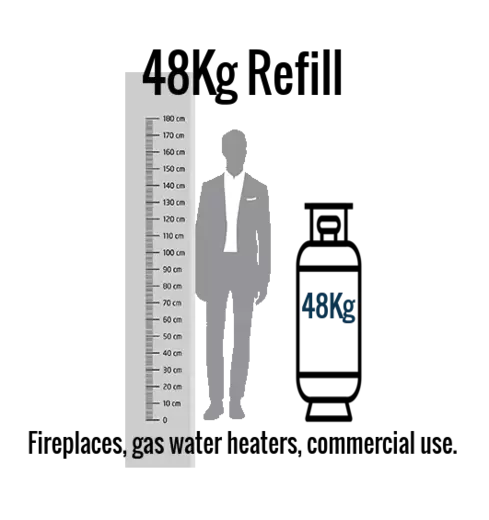What is LPG?
Share
If you rely on gas for cooking, heating, or powering your hot water system and don't have access to natural gas, chances are you're using Liquefied Petroleum Gas (LPG). In this article, we will delve into LPG, why it's a popular choice, and how it differs from other gases.
What is LPG? LPG stands for Liquefied Petroleum Gas, a highly flammable gas produced through the refinement of crude oil and the processing of natural gas. Its versatile applications include heating homes, fueling hot water systems, cooking, and even firing up the barbecue. Surprisingly, LPG can also power vehicles and forklifts. While LPG typically comprises a mixture of propane and butane hydrocarbon gases, it predominantly consists of propane in South Africa.
Why Choose LPG? In South Africa, LPG is the preferred choice for 16% of households relying on bottled gas. The reasons behind its popularity are clear—it's clean, cost-effective, efficient, and portable when compared to other gas options. While not a renewable energy source, it's significantly less harmful to the environment than crude oils like diesel. In fact, using LPG and natural gas can reduce carbon emissions by approximately 25% and eliminate several hazardous chemicals. LPG also burns hotter than many other gases, making it an efficient fuel source. Its portability and availability in various-sized gas bottles add to its appeal.
LPG in Your Home LPG finds numerous applications in households, fueling a variety of gas appliances including
- Gas stoves and hobs
- ovens
- Gas braai ( Barbecues )
- hot water systems ( Gas water heater )
- Gas heaters
- Gas fireplace

We Install all types of gas appliances so be sure to contact us so we can assist.
Propane vs. LPG: Are They the Same? Propane gas and LPG are essentially the same type of gas, although LPG may include other hydrocarbon gases like butane. Both propane gas and LPG become liquid when pressurized and can be used as a source of fuel or heating. Typically, both are stored in gas cylinders or bottles.
Distinguishing LPG from Natural Gas The primary distinction between LPG and natural gas, a mix of various gases, is their distribution method. Natural gas is distributed through pipelines, while LPG is available in cylinders or gas bottles. Additionally, LPG primarily consists of propane, whereas natural gas is mainly composed of methane.
In South Africa, the availability of natural gas depends on your location. If you can't access natural gas from the mains supply, you'll likely need to opt for LPG. Keep in mind that gas retailers usually require appliances to be fitted with the appropriate connections for the type of gas used.
South Africa's Leading LPG Suppliers
Several LPG suppliers operate across South Africa, including names like
- Afrox
- Bp Gas
- Easi Gas
- Oryx
- Total Gaz
Additionally, you might find local suppliers in your area.
Understanding LPG Costs The cost of LPG varies due to several factors, including retailer prices, gas bottle sizes, delivery fees, and potential rental charges for cylinders. To ensure you're paying a reasonable price, it's wise to compare your options.
Refilling Your LPG Cylinder When your LPG cylinder is empty, Arrange with Suppliers for a gas bottle exchange. The exchange involves replacing empty cylinders with full ones. Many households prefer to have multiple cylinders installed at once, using one while keeping the other as a backup. Smaller LPG bottles, typically 9kg or less, are often used with smaller installations and can be replaced or refilled at most service stations.
Transporting LPG Cylinders For larger LPG bottles that exceed 9kg or when you need to transport more than two cylinders at once, it's usually required to have them delivered by an authorized supplier. Smaller bottles suitable for appliances like gas heaters can be transported in your car, provided they don't exceed the specified capacity.
Conclusion In South Africa, LPG, or Liquefied Petroleum Gas, plays a vital role in many households and businesses, serving as a versatile and efficient energy source. From cooking delicious meals on your gas stove to staying warm with gas heaters and firing up the barbeque for a weekend braai. LPG is a dependable companion. Its eco-friendly attributes, cost-effectiveness, and portability make it a preferred choice for many South Africans.
As you explore the world of LPG, it's essential to understand its distinct advantages, its similarities to propane, and how it differs from natural gas. Whether you're in the bustling city or the serene countryside, LPG can be a reliable energy solution where natural gas isn't readily available.
Remember, as you embark on your LPG journey, comparing prices and considering factors like delivery fees and rental charges can help you make informed choices. Additionally, proper handling and transportation of LPG cylinders ensure your safety and that of those around you.
So, the next time you enjoy a perfectly grilled steak on your gas stove or cozy up to a warm gas fireplace on a chilly night, you'll have a deeper appreciation for the role LPG plays in your daily life. It's more than just gas, it's the fuel that keeps South Africa's homes and businesses running smoothly.
We hope this article has shed light on the mysteries of LPG and its significance in South Africa. If you have any more questions or need further information, don't hesitate to reach out to The LpGas Man or gas expert.
Thank you for joining us on this journey through the world of LPG, where convenience, efficiency, and sustainability come together in the flicker of a gas flame.




